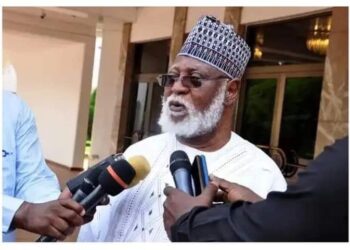President of the Senate, Ahmad Lawan, and Speaker of House of Representatives, Hon Femi Gbajabiamila, declared in Abuja on Monday, that the 9th National Assembly performed far better than five others before it, since 1999.
This is as they lamented the misperception and misunderstanding of the 9th National Assembly by some Nigerians who wrongly labelled it as a rubber stamp one.
Speaking separately at the Welcome Dinner organised for Senators and Members – elect for the 10th National Assembly by management of NASS and National Institute for Democratic and Legislative Studies ( NILDS), at the Ladi Kwali Hall of Hotel Continental, the duo said good governance – driven performance of the 9th National Assembly stemmed from harmonious working relationship with the executive arm of government.
Specifically, the President of the Senate in his speech said in the area of legislation alone, as at July 2022, a total of 874 bills have been introduced at the stage of first reading, out of which 162 passed the third reading and 104 concurred to, by the House of Representatives and assented by the President.
“He said: “At the onset, the 9th Senate was mindful of the damaging effect of persistent conflict with the Executive and the resultant impact on legislative activities.
“We were equally aware that a good working relationship is desirable and indeed imperative to achieve effective and efficient service delivery to the people.
“This approach to engaging with the executive has led to a misperception and misunderstanding, which has led many to tag the 9th National Assembly as a “rubber stamp” assembly.
“Yet, our intention in preferring an engagement with the executive based on harmony and collaboration has been to better serve Nigeria by providing a safe atmosphere for national development.
“There is no doubt that this has proven to be beneficial to the people we represent. Compared to previous Assemblies, the achievement of the 9th National Assembly in the area of law-making is attributable to harmonious executive-legislative relations, which, contrary to many expectations, need not be aggressive.”




